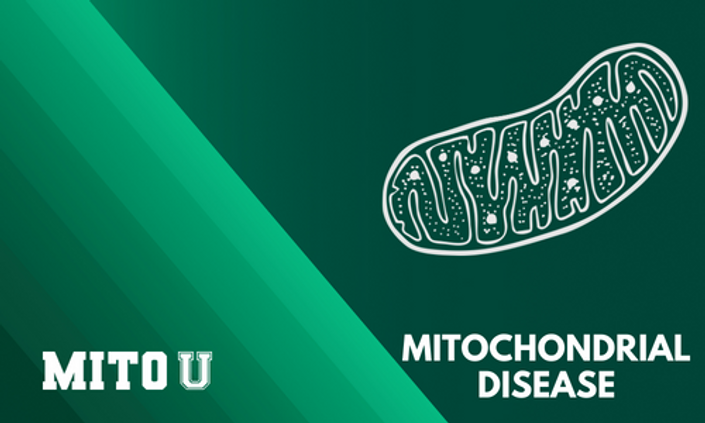About Mitochondrial Disease and Specialties – Part I
The Mitochondrial Medicine Society (MMS) and the United Mitochondrial Disease Foundation are pleased to offer curriculum to provide clinicians an opportunity to learn more about mitochondrial disease as well as earn continuing medical education credits.
COURSE DESCRIPTION
The United Mitochondrial Disease Foundation and PeerPoint Medical Education Institute have joined efforts to sponsor and organize CME-accredited VIRTUAL courses as enduring material. Mitochondrial diseases are more common than previously recognized and mitochondrial pathophysiology is now a recognized part of many disease processes, including heart disease, cancer, AIDS and diabetes. Mitochondrial Disease and Specialties – Part I will focus of the following: Critical Care, Cardiology, Endocrinology, Nephrology, Immunology, and Movement Disorders.
TARGET AUDIENCE
Neurologists, Geneticists, Researchers/Scientists, Pediatrics, Internal Medicine, Nephrologists, Cardiologists, Endocrinologists, Genetic Counselors, Advanced Practice Nurses, Physicians Assistants, RNs, Occupational Therapy, Physical Therapy and Speech-Language Pathology, Nutritional Therapy, Residents/Fellows/Students and patients/families.
ACCREDITATION AND DESIGNATION STATEMENTS
This activity has been planned and implemented in accordance with the accreditation requirements and policies of the Accreditation Council for Continuing Medical Education (ACCME) through the joint providership of PeerPoint Medical Education Institute, LLC and United Mitochondrial Disease Foundation. The PeerPoint Medical Education Institute, LLC is accredited by the ACCME to provide continuing medical education for physicians.
PeerPoint Medical Education Institute, LLC designates this enduring activity for a maximum of 3.75 AMA PRA Category 1 Credit(s)™. Physicians should claim only the credit commensurate with the extent of their participation in the activity.
Breakdown on Credits Available for Course:
- Critical Care and Mitochondrial Disease = 1
- Cardiac Management and Mitochondrial Disease = .25
- Endocrinology and Mitochondrial Disease = .5
- Nephrology and Mitochondrial Disease = .75
- Infection and Immunity in Mitochondrial Disorders = .75
- Movement Disorders and Mitochondrial Disease = .5
Release Date: December 28, 2020 Expiration Date: December 27, 2023
Learning Objectives
Management of Acute Emergencies:
- Review optimal fluid management and nutrition
- Review management of metabolic acidosis
- Identify and manage acute multi-organ involvement
Cardiac Management:
- Define primary mitochondrial disease (PMD)
- Review mitochondrial cardiac physiology
- Review cardiac involvement in PMDs
- Case-based discussion and recommendations for cardiomyopathy diagnosis/management in PMDs
- Case-based discussion and recommendations for arrhythmias diagnosis/management in PMDs
- Considerations in other disorders of mitochondrial dysfunction
Endocrinology and Mitochondrial Disease
- Recognize the common manifestations of endocrine disorders affecting individuals with mitochondrial disease
- Discuss screening strategies for endocrine disorders affecting individuals with mitochondrial disease
Nephrology and Mitochondrial Disease
- Identify red flag renal symptoms that indicate mitochondrial disease
- List the mitochondrial diseases that most require renal screening
- Understand that renal transplantation is generally tolerated in mitochondrial disease
- Name the indications & considerations for dialysis in mitochondrial disease patients
- Identify electron microscopy as a highly sensitive and specific diagnostic tool for mitochondrial renal disease
Infection and Immunity in Mitochondrial Disease
- Understand that the immune system is important for vaccination and protection against infection
- Recognize infection can be detrimental to patients with mitochondrial disease and refer to immunologists for symptoms of immunodeficiency/immune dysfunction
Movement Disorders in Mitochondrial Disease
- Review the common movement disorders present in primary mitochondrial disorders
- Review the common mitochondrial genetic disorders that present with movement disorder
Speakers:
- Rebecca Ganetzky, MD, Children’s Hospital of Philadelphia – Click Here for Bio
- Amy Goldstein, MD, Children’s Hospital of Philadelphia – Click Here for Bio
- Shana E. McCormack, MD, MTR, Division of Endocrinology and Diabetes Center for Mitochondrial and Epigenomic Medicine (CMEM), Children’s Hospital of Philadelphia – Click Here for Bio
- Peter J. McGuire MS, MBBCh, Investigator, Metabolism, Infection and Immunity Section, Medical Genomics and Metabolic Genetics Branch – Click Here for Bio
- Hilary Hilary Vernon, MD, PhD, Associate Professor, McKusick-Nathans Institute of Genetic Medicine, Johns Hopkins University School of Medicine – Click Here for Bio
Featured Course
Mitochondrial Disease and Specialties - Part 1 (Management of Acute Emergencies, Cardiac, Endocrinology,
Nephrology, Infection & Immuno, and Movement Disorders)
